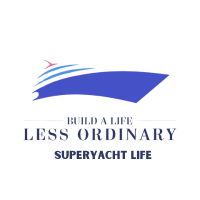This is Mile’s personal story and offers insights into the role of a Junior Engineer working and living on a superyacht and an insight into the personal side of life on board. It’s quite common to double as dual Deckhand and Engineer, however the Engineering aspect may outweigh the Deckhand role. Getting your ticket to climb up the ranks of Engineer on superyachts requires certification, you will find information in this article on how to enrol to become a Small Vessel Engineer Officer.
Personal Story
Superyacht work is unlike any other job, and no job is the same. As a junior engineer, Miles works as a junior member of the Engineering team on board a 70m motor superyacht and is working towards getting his ticket to become a Marine Chief Engineer. His story provides insights into the personal side of yachting life and a little glimpse into what his role is like on board his current boat.


Role & Routines
As a junior Engineer working and living on this particular superyacht for Miles is a mix of deckhand and engineering work which starts at 7am every morning. Tidiness, cleanliness and orderliness are the main priorities that govern his day. Keeping the interior staff areas on board such as cabin and crew mess neat tidy is as important as the exterior of the boat.
Deckhand duties are fairly standard across the industry but vary from yacht to yacht. Miles’s dual role as a deckhand involves helping with whatever is needed. This includes includes washdowns, tidying crew mess and cleaning outside spaces. His role in the engineering department involves working on the planned maintenance system and logging of all machinery every day. He is currently also working on specific projects like painting and maintenance of the bilge.
First thing in the morning is a quick coffee before heading to the morning brief at 7am. Breakfast is at 9am and the Chef always makes a full cooked breakfast. Back to work and then stop at 1pm for lunch and then finish work at 3pm. There is a gym on board for the crew and also the opportunity to head off the boat after work for a run, then everyone meets for dinner is at 6pm. There are always snacks and drinks available in the crew mess at any time. As the yacht is currently at dock without guests, work is Monday to Friday and weekends and evenings are completely free time.
Industry Downsides
There is always a risk when accepting any superyacht job that the yacht’s expected passage may not pan out as planned. In Miles’s case he thought he would be heading to the South Pacific or somewhere equally exotic soon. Unfortunately, since arriving he has been moored in the marina and sailing off to the South Pacific is still now just a plan.
Irrespective of any career in yachting, whether you’re an engineer, deckhand or the interior staff, working and living on any superyacht can be a disappointment sometimes. From a career perspective it isn’t great to quit so soon after landing the job, and from a lifestyle perspective, it may not be what you expected either. This is the yachting world where people switch jobs regularly for lots of reasons. If you have a genuine case for leaving a boat, it doesn’t seem to hinder your prospects, too much.
Perks of The Job
The crew on board love having weekends off to socialise and explore together. Miles has enjoyed social events like going to a rugby match and competed in a 10K Run, coming 1st place. The crew enjoy a lot of socialising, mini sporting competitions and shore excursions. On a career level, working and living as a junior Engineer on this superyacht is a great opportunity for him to get more experience. His aim is to get as much of his Training Record Book (TRB) signed off, an opportunity he never had before working on smaller sailing super yachts.


Personal Sacrifices
One of the hardest aspects so far has been learning to manage a long distance relationship with his girlfriend. Miles had worked with his girlfriend on smaller superyachts for the past 18 months, but they are now on separate boats. It was very difficult to find a couples job that would fulfil both of their career objectives, so decided to find separate jobs. This means an indefinite time apart with a loose plan to meet for holidays and one day find a couples job. In the meantime they are both gaining valuable experience in their respective fields.
It is inevitable when working in this industry that you will meet someone and end up in this situation. In long term relationships, it may be necessary to make sacrifices, for career or personal reasons and live apart. Learning to adapt to this isn’t easy, particularly if both are working on separate superyachts working long hours and in different time zones.
Challenges at work
One aspect of living and working on superyachts is being outside your comfort zone. It’s quite normal to change jobs at least twice a year, because of the different seasons and demands of boats. Changing jobs and boats can be daunting as it’s never the same on each boat.
Crew numbers on large super yachts can be upwards of 20 -35 staff, this may push your personal boundaries in lots of ways. Taking orders, managing conflict, and understanding the hierarchy and chain of command will push specific aspects of your coping skills. Your interpersonal skills will certainly get a good workout to manage both professional and personal relationships with fellow team members.
Learning and perfecting the superyacht work ethic for when boss and guests are on board is demanding and stressful. Work intensity quadruples, tensions and pressures rise, and exhaustion levels explode into physically crippling proportions. This is not to be underestimated, fitness both physically and mentally is a massive attribute.
Personal challenges
Managing and coping with personal anxiety or distance relationships may also erode your stamina. Living amongst a great crew can be fun and rewarding, in many ways, but homesickness and longing can creep up without warning. Little reminders of the life you have left behind sometimes hit you unexpectedly.
Even with the availability of video and online chats to connect with loved ones, you may find it difficult to match up your free time with internet and time zones which thwart that. Everyone goes through these feelings, you cannot work in this industry and expect to escape at least one, some or all of these issues.


Getting Your Engineering Ticket!
To enroll for the Small Vessel Engineer Officer Route via the experienced seafarer route, you must have an STCW, ENG1, a recognized engineering qualification and the Approved Engine Course 1 and 2. In addition you will be required to show 24 months onboard time, including 6 months seagoing service on a vessel >200 kW. Once you have provided evidence of these certificates and verified your sea service, you may then register with Warsash to receive a training record book (TRB).
The progression and attainment of this ticket continues with further service on vessels >350kW, and 12 months experience for experienced sea farers and degree graduates. Longer service time is required for apprentice holders HND/HNC/NVQ 3+. This sea service must include 6 months of watchkeeping and completion of the training record book (TRB) to complete the SV EOOW <9000kW <3000GT.
To obtain the SV Engineer Officer of the Watch <9000kW and <3000GT the other competencies include: Workshop skills training, Marine Diesel Engineering, Auxiliary Equipment 1, Operational Procedures, basic hotel services & ship construction, proficiency in survival craft and rescue boats, advanced firefighting, proficiency in medical first aid, HELM (operational level).
*kW is engine power, GT is the measure of the internal volume of the vessel.
To apply for the TRB, register with Warsash sending applications to wma.lia@solent.ac.uk. The cost of this booklet at the time of writing is around £200.
Opportunities
There are so many opportunities for travel, adventure, and fun working in this industry. Having a goal to aim for is always good as it will help you focus on the direction you want to take. Enjoying the journey along the way is part of this experience. For Miles, the challenges and sacrifices he was making to get experience for his ticket while being away from his partner were made worse because this job wasn’t ticking all the boxes for why he was there. Because of this, Miles left this role after only a month and found work on another yacht which did tick all the boxes.
You may work on several yachts in a short space of time, or land your dream job and stay there indefinitely, everyone’s journey is different. This is the wonderful world of living a life less ordinary!



